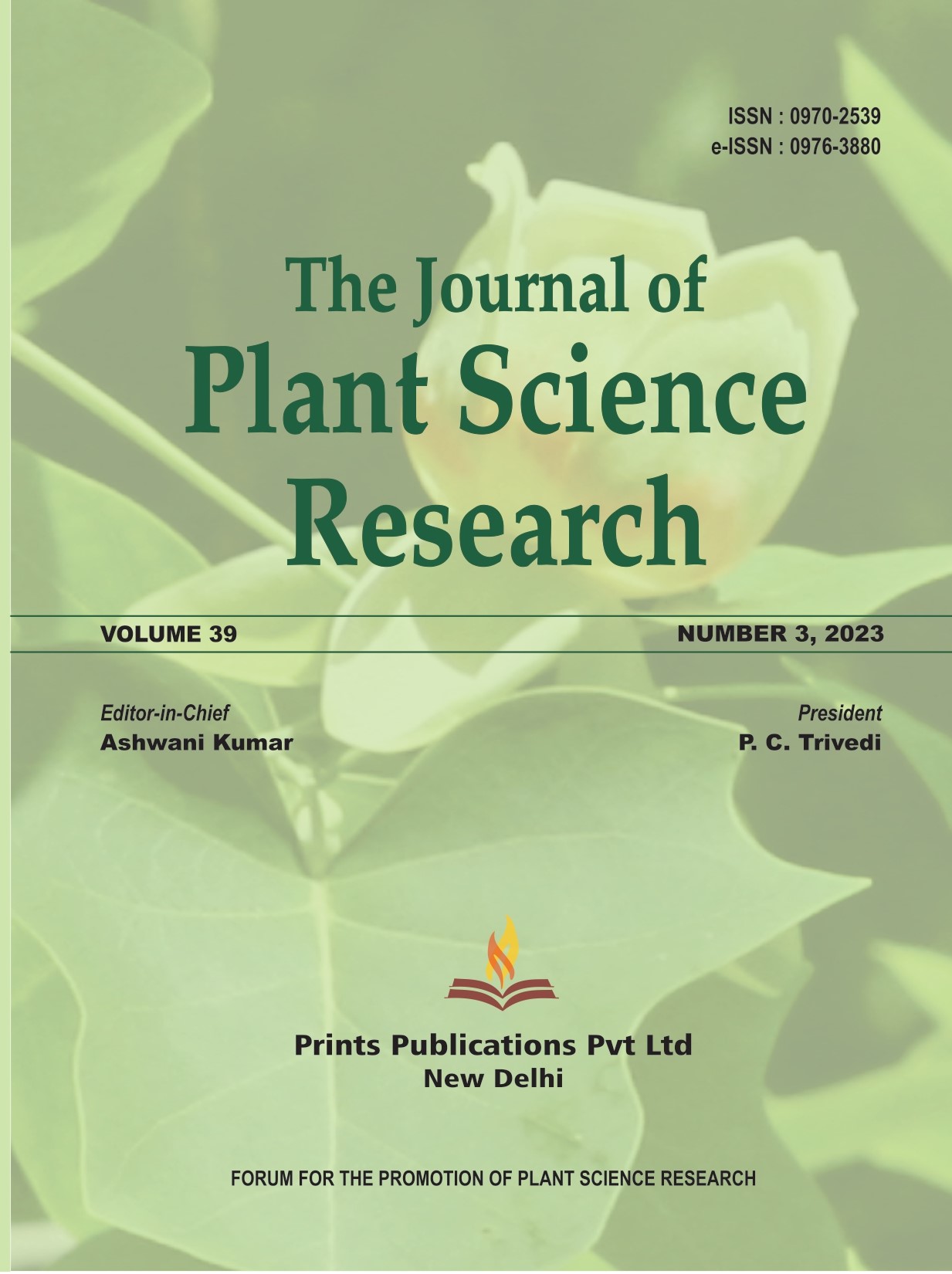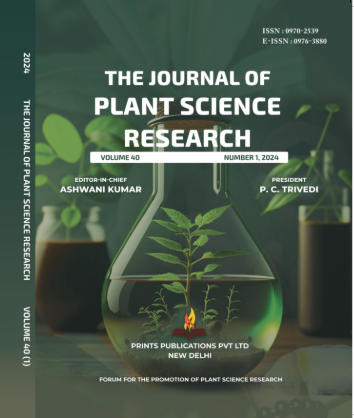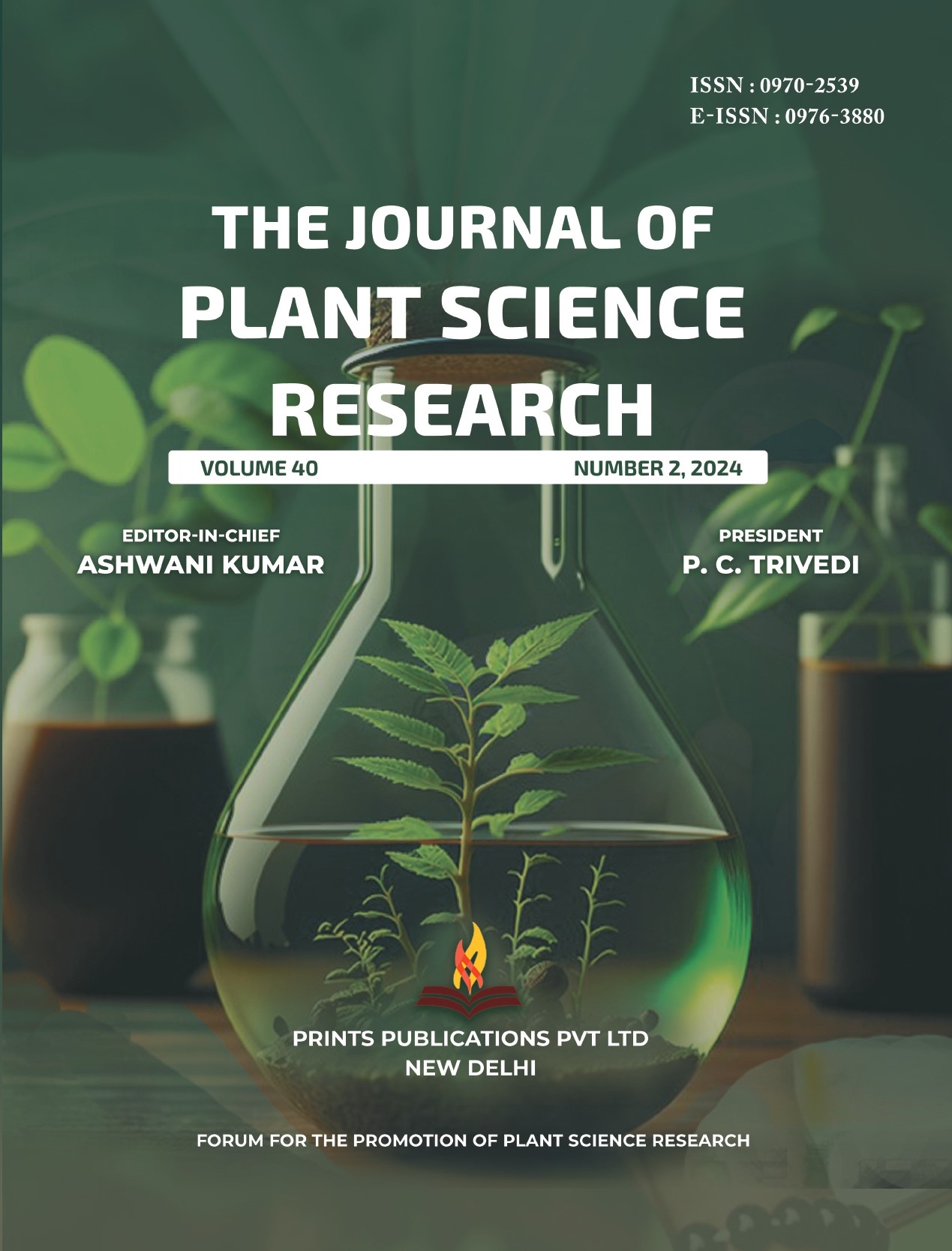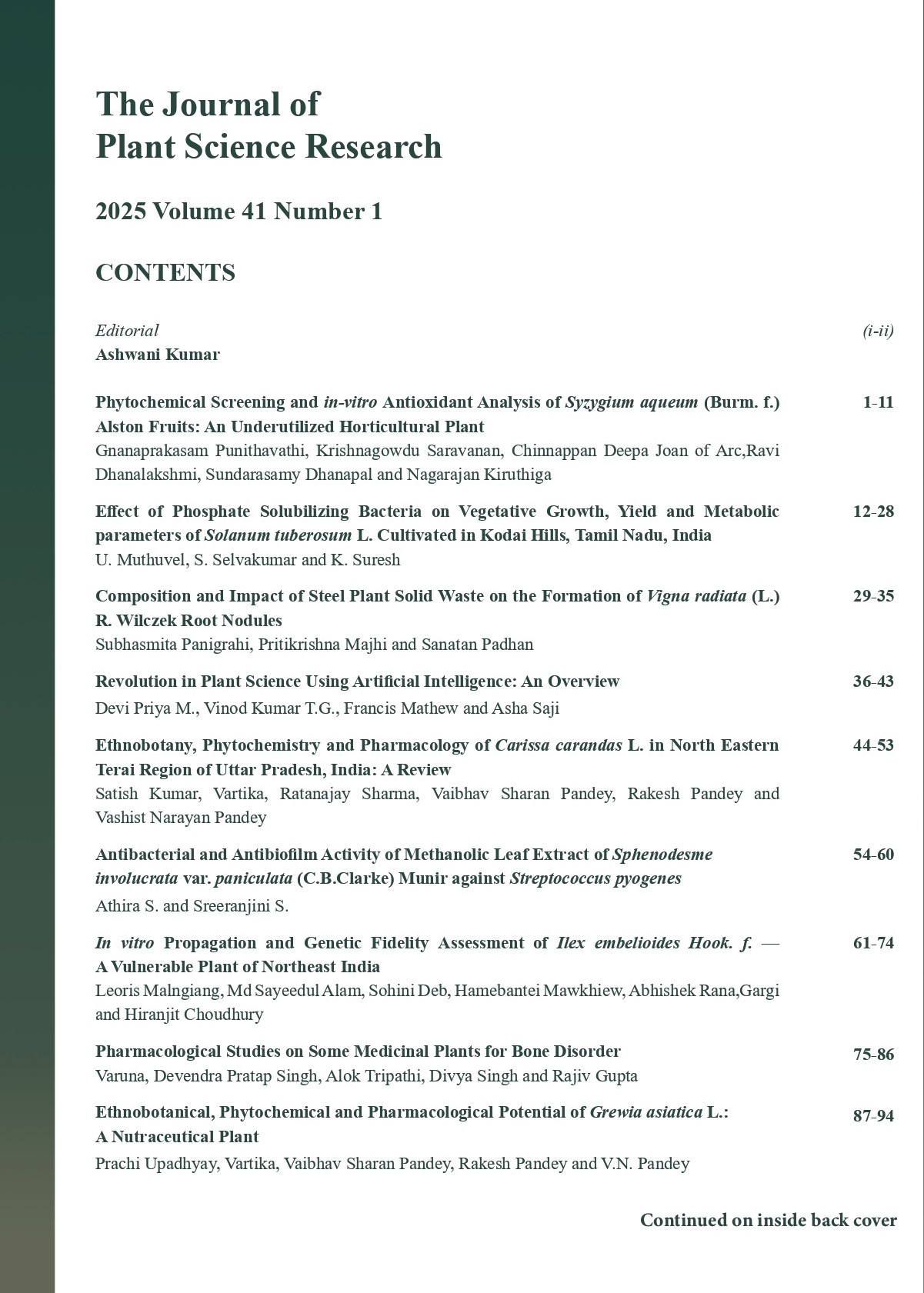The Journal of Plant Science Research - A UGC Care-Listed Journal
Published in Association with Forum For the Promotion of Plant Science Research
Current Volume: 41 (2025 )
ISSN: 0970-2539
e-ISSN: 0976-3880
Periodicity: Tri-annual
Month(s) of Publication: April, August & December
Subject: Botany
DOI: 10.32381/JPSR
Online Access is Free for Life Member
Transgenic Research: Present Status, Concerns and Future Prospects
By : Javeed A. Lone, Shabir H. Wani, M. A. Bhat, Asif B. Shikar, Rayees A. Lone
Page No: 53-71
Abstract
Transgenic plant research depends on the availability of procedures for plant transformation. It is usually carried out by two methods i,e. the use of Agrobacterium as a biological vector for foreign gene transfer, and direct gene transfer techniques. Agrobacterium can be used to transform a wide range of plants, but there are a number of species which are of interest for basic or applied research in which of Agrobacterium - mediated transformation is not reproducible or efficient. The “first generation” of transgenic crops were aimed at improving traits involving single genes. Transgenic technology has been pivotal in the full spectrum of new developments, from gene identification to an improved understanding of their regulation, as well as genetic transformation involving more complex transfers of many genes simultaneously. In 2014 global biotech crop hectarage continued to grow for the 19th consecutive year of commercialization; 18 million farmers in 28 countries planted more than 181 million hectares in 2014, up from 175 million in 27 countries in 2013. India cultivated a record 11.6 million hectares of Bt cotton planted by 7.7 million small farmers with an adoption rate of 95%, up from 11.0 million hectares in 2013. Notably, the increase from 50,000 hectares of Bt cotton in 2002 to 11.6 million hectares in 2014, represents an unprecedented 230-fold increase in thirteen years. latest provisional estimate indicated that India had enhanced farm income from Bt cotton by US$16.7 billion in the twelve year period 2002 to 2013 and US$2.1 billion in 2013 alone, similar to 2012. Notably, Bangladesh, a small poor country approved Bt brinjal/egg plant for the first time on 30 October 2013, and in record time-less than 100 days after Production of transgenic crops with enhanced heat stress tolerance is a highly desired agronomic trait for the sustainability of food production in 21st century.
Authors :
Javeed A. Lone, Shabir H. Wani, M. Ashraf Bhat, Asif B. Shikari and Rayees A. Lone : Division of Genetics and Plant Breeding, Sher-e- Kashmir University of Agricultural Science and Technology of Kashmir, India






